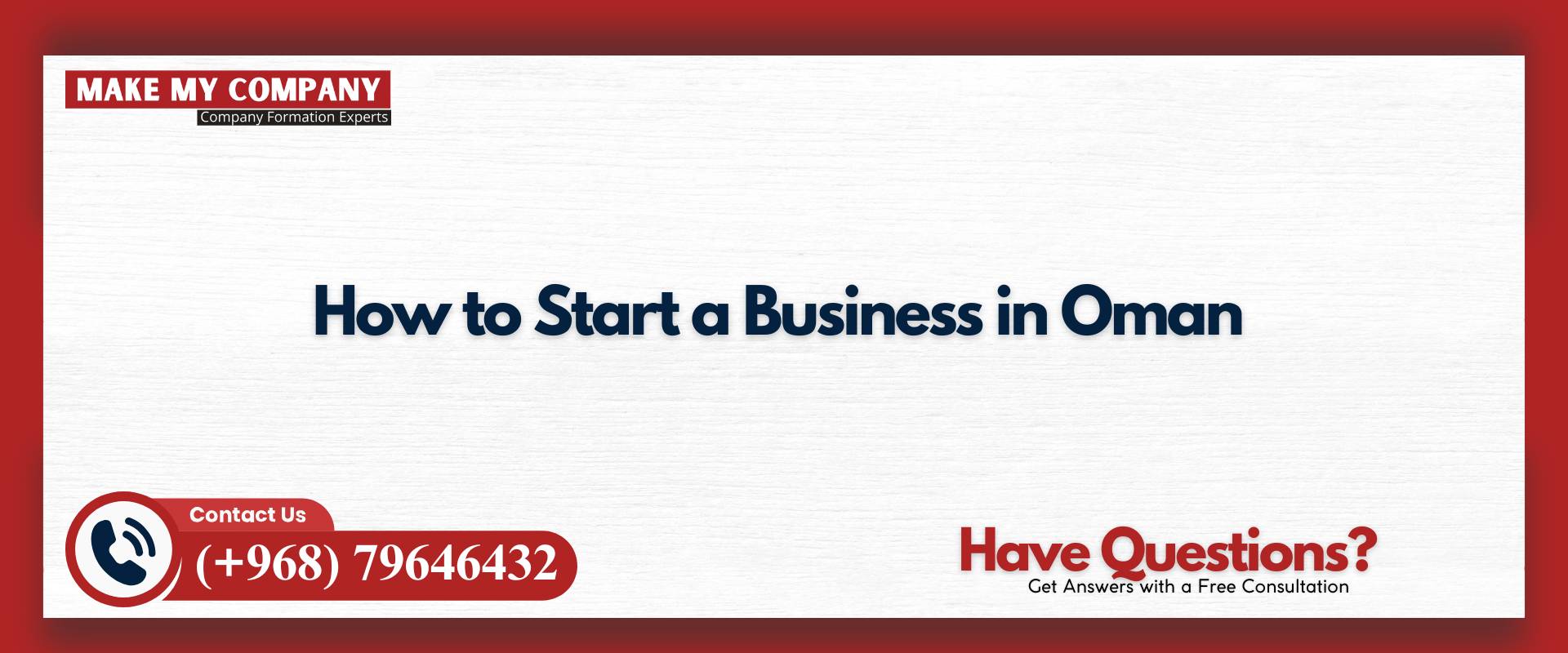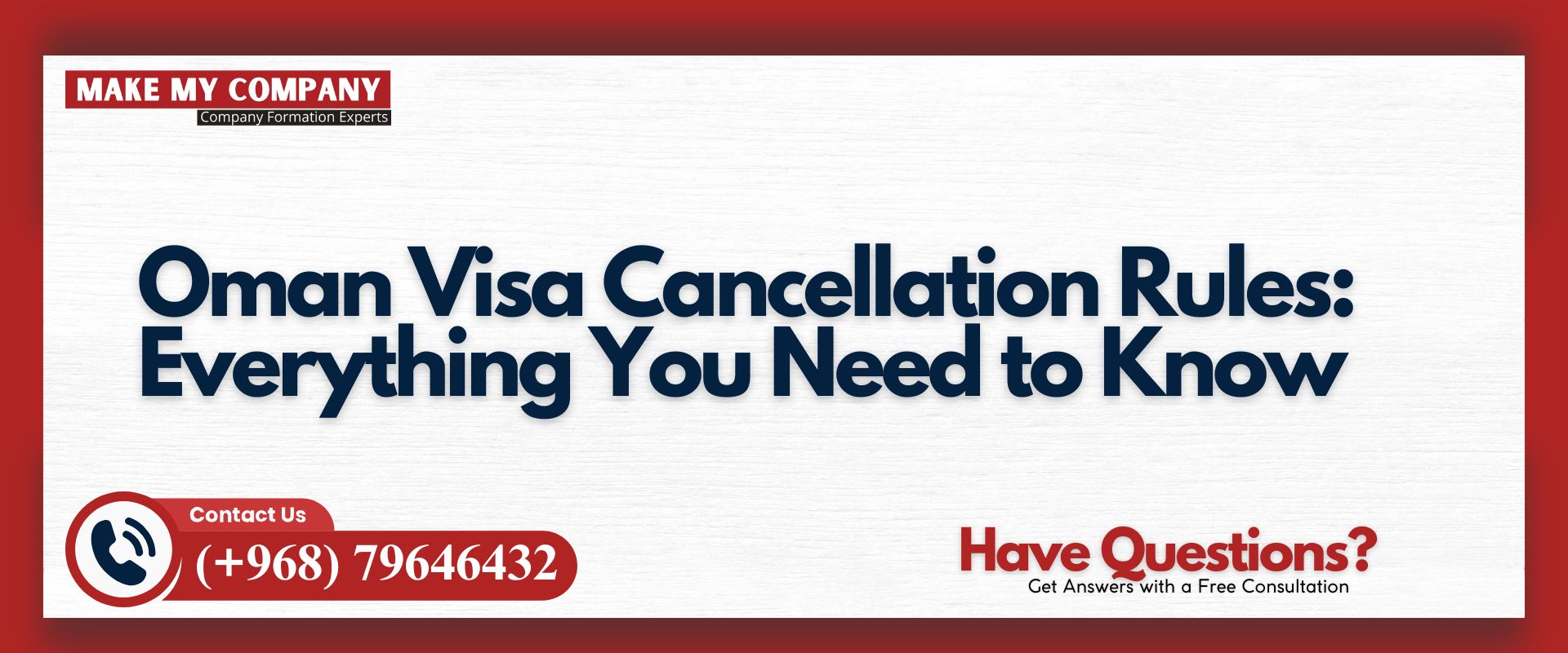Starting a business in Oman can be an exciting venture, full of opportunities for growth and success. With its strategic location, stable economy, and supportive business environment, Oman is an excellent place for entrepreneurs to establish and expand their businesses. In this guide, we’ll walk you through everything you need to know about starting a business in Oman in 2024. From understanding the local business environment to navigating the registration process, we’ve got you covered. Let’s dive in!
Understanding the Business Environment in Oman
Oman’s economy is diverse and steadily growing, making it a promising destination for new businesses. The government has been proactive in attracting foreign investment through various initiatives such as free zones and favorable tax regulations. Before diving into the setup process, it’s essential to understand what makes Oman a great place for business.
Strategic Location and Market Access
Oman’s location on the Arabian Peninsula offers excellent access to markets in the Middle East, Africa, and South Asia. Its well-developed infrastructure and ports make it a hub for trade and commerce. This strategic position can provide your business with numerous opportunities to expand and reach international markets.
Government Support and Incentives
The Omani government is keen on attracting foreign investors and offers several incentives to make the process smoother. These include tax exemptions, customs duty exemptions, and simplified business regulations. Knowing these incentives can help you make the most of your investment in Oman.
Steps to Start a Business in Oman
Starting a business in Oman involves several key steps. Here’s a detailed look at each one to help you navigate the process smoothly:
1. Choose the Right Business Structure
The first step is to decide on the business structure that best suits your needs. The main types of business entities in Oman include:
- Limited Liability Company (LLC)
- Joint Stock Company (JSC)
- Branch of a Foreign Company
- Representative Office
- Sole Proprietorship
Each structure has its own requirements and benefits, so it’s essential to choose the one that aligns with your business goals.
2. Reserve Your Company Name
Next, you’ll need to reserve your company name with the Ministry of Commerce, Industry, and Investment Promotion (MOCIIP). Make sure the name is unique and complies with Omani naming conventions.
3. Draft the Memorandum of Association
The Memorandum of Association (MoA) outlines your company’s objectives, shareholder details, and share capital. This document must be notarized and submitted to the MOCIIP.
4. Register Your Company
Submit the necessary documents, including the MoA, to the MOCIIP to officially register your company. Required documents typically include:
- Completed application form
- MoA
- Company name reservation certificate
- Shareholder identification documents
- Proof of registered office address
5. Obtain a Business License
After registering your company, you’ll need to obtain a business license. The type of license depends on your business activities. Common licenses include:
- General Trading License
- Industrial License
- Service License
- Tourism License
Ensure you meet all licensing requirements to operate legally in Oman.
6. Register for Taxes
Register your business with the Tax Authority to obtain a Tax Identification Number (TIN). This step is crucial for complying with Omani tax regulations.
7. Open a Business Bank Account
You’ll need a business bank account to manage your company’s finances. Choose a bank that offers services tailored to your business needs.
For Information : Opening a Corporate Bank Account in Oman
8. Hire Employees and Register with the Social Insurance Authority
If you plan to hire employees, you’ll need to register with the Public Authority for Social Insurance (PASI) to comply with labor laws and social insurance requirements.
Business License Requirements in Oman
Understanding the business license requirements in Oman is essential for ensuring compliance and smooth operations. The type of license you need depends on your business activities.
General Trading License
A General Trading License allows you to trade in a wide range of goods. It’s ideal for businesses involved in import and export activities.
Industrial License
If your business involves manufacturing or industrial activities, you’ll need an Industrial License. This license permits you to set up factories and engage in production processes.
Service License
A Service License is necessary for businesses providing services such as consulting, IT, and professional services. Ensure you meet the specific requirements for your service industry.
Tourism License
If you’re in the tourism and hospitality industry, you’ll need a Tourism License. This includes businesses like hotels, travel agencies, and tour operators.
Cost of Starting a Business in Oman
The cost of starting a business in Oman can vary widely depending on the type of business, its size, and the specific requirements of the industry. Here’s a breakdown of some of the typical costs you can expect:
Company Registration Fees
The fees for registering a company with the Ministry of Commerce, Industry, and Investment Promotion (MOCIIP) vary based on the business structure and share capital. For example, registering a Limited Liability Company (LLC) might have different fees compared to a Joint Stock Company (JSC). On average, the registration fee for an LLC can range from OMR 200 to OMR 500.
Learn More : Company Registration in Oman
Licensing Fees
Obtaining the necessary business licenses is another cost to consider. The fees depend on the type of license you need, such as a General Trading License, Industrial License, or Service License. Licensing fees can range from OMR 100 to OMR 1000 annually, depending on the business activities and sector.
Office Space and Infrastructure
Renting office space is a significant expense, especially in prime business locations. Office rental costs in Muscat, for example, can vary greatly based on the location, size, and facilities provided. On average, you can expect to pay between OMR 5 and OMR 15 per square meter per month. Additionally, setting up the necessary infrastructure, including furniture, IT systems, and utilities, can add to the initial costs.
Employee Salaries and Benefits
Hiring employees comes with costs including salaries, benefits, and social insurance contributions. The average monthly salary for a skilled worker in Oman can range from OMR 300 to OMR 1000, depending on the industry and job role. Employers are also required to contribute to the Public Authority for Social Insurance (PASI) for Omani employees, which is approximately 11.5% of the employee’s salary.
Professional Services
Engaging professional services, such as legal advisors, consultants, and accountants, is essential for ensuring compliance with local regulations and smooth business operations. The cost for these services can vary based on the complexity and scope of work. Legal and consultancy fees can range from OMR 500 to OMR 5000 annually, depending on the services required.
Marketing and Promotion
Launching your business will require a budget for marketing and promotion to reach your target audience. This can include digital marketing, advertising, branding, and public relations. Depending on the scale of your marketing efforts, you should budget anywhere from OMR 1000 to OMR 5000 annually.
Miscellaneous Costs
Other miscellaneous costs to consider include:
- Utilities: Electricity, water, and internet costs, which can average around OMR 50 to OMR 200 per month.
- Bank Fees: Charges for opening and maintaining a business bank account, which can range from OMR 50 to OMR 200 annually.
- Travel and Transportation: If your business requires frequent travel or transportation, factor in these costs as well.
Overall, starting a business in Oman requires careful financial planning and budgeting. By understanding and anticipating these costs, you can ensure a smoother setup process and set your business up for success.
Oman Business Visa Requirements
Obtaining a business visa is essential for foreign investors and entrepreneurs planning to start a business in Oman. Here’s an overview of the business visa requirements:
Types of Business Visas
Oman offers various types of business visas, including:
- Investor Visa
- Employment Visa
- Visit Visa for Business
Application Process
The application process for a business visa involves submitting the necessary documents to the Royal Oman Police (ROP) or through the eVisa portal. Required documents include:
- Completed visa application form
- Passport copy
- Company registration documents
- Proof of investment
Oman Free Zone Company Setup
Setting up a company in one of Oman’s free zones offers numerous advantages, making it an attractive option for many entrepreneurs and investors. Free zones in Oman provide a range of incentives designed to facilitate business operations and attract foreign investment. Here’s what you need to know about establishing a free zone company in Oman:
Advantages of Free Zone Setup
Free zones in Oman offer several benefits that can significantly enhance your business operations, including:
- 100% Foreign Ownership: Unlike mainland companies, free zone companies can be entirely owned by foreign investors, providing greater control over business decisions.
- Tax Exemptions: Free zone companies often enjoy exemptions from corporate tax, customs duties, and import/export taxes for a specified period, which can substantially reduce operational costs.
- Simplified Regulations: The regulatory framework in free zones is designed to be more business-friendly, with streamlined procedures for company registration, licensing, and other compliance requirements.
- Repatriation of Profits: Free zone companies are generally allowed to repatriate 100% of their profits and capital, offering greater financial flexibility.
- Modern Infrastructure: Free zones typically provide state-of-the-art infrastructure, including offices, warehouses, and logistics facilities, which can support efficient business operations.
Key Free Zones in Oman
Oman has several free zones that cater to different industries and business activities. Here are some of the prominent free zones where you can set up your company:
- Duqm Special Economic Zone: Located in the Al Wusta region, the Duqm SEZ is one of the largest special economic zones in the Middle East. It offers opportunities in sectors such as logistics, manufacturing, tourism, and fisheries.
- Sohar Free Zone: Situated near the Sohar Port, this free zone is ideal for businesses involved in industrial and logistics activities. It offers easy access to major shipping routes and has excellent infrastructure for manufacturing and trade.
- Salalah Free Zone: Located in the southern part of Oman, near Salalah Port, this free zone focuses on logistics, manufacturing, and renewable energy. It provides strategic access to markets in East Africa, India, and the Middle East.
Steps to Set Up a Free Zone Company
Setting up a company in one of Oman’s free zones involves several steps. Here’s a general outline of the process:
- Select the Free Zone: Choose the free zone that best aligns with your business activities and industry requirements. Each free zone has specific regulations and incentives tailored to different sectors.
- Choose a Business Activity: Define the nature of your business activity, whether it’s trading, manufacturing, logistics, or services. This will determine the type of license you need.
- Submit an Application: Complete and submit the application form to the free zone authority, along with the required documents, which typically include a business plan, shareholder identification, and financial statements.
- Obtain Initial Approval: Once your application is reviewed, you’ll receive initial approval from the free zone authority. This approval is necessary to proceed with the company registration.
- Register the Company: After receiving initial approval, you’ll need to register your company with the free zone authority. This involves signing the lease agreement for office or warehouse space and paying the relevant fees.
- Obtain the Business License: Depending on your business activity, you’ll need to obtain the appropriate business license from the free zone authority. This license allows you to legally operate within the free zone.
- Set Up Operations: Once you have your business license, you can start setting up your operations. This includes fitting out your office or warehouse, hiring staff, and commencing business activities.
Oman LLC Company Formation
Forming a Limited Liability Company (LLC) is a popular choice for foreign investors. Here’s a detailed look at the process:
Shareholder Requirements
An LLC in Oman requires at least two shareholders, with no maximum limit. Shareholders can be individuals or corporate entities.
Capital Requirements
The minimum share capital for an LLC is OMR 20,000, which must be deposited in a local bank account.
Management Structure
An LLC must have at least one manager, who can be a shareholder or an appointed individual. The management structure should be outlined in the MoA.
Starting a Small Business in Oman
Starting a small business in Oman offers numerous opportunities for entrepreneurs. Here are some tips for success:
Identify Market Opportunities
Conduct thorough market research to identify opportunities and gaps in the market. Understanding customer needs and preferences is crucial for success.
Develop a Business Plan
A well-structured business plan outlines your business goals, strategies, and financial projections. It serves as a roadmap for your business journey.
Leverage Digital Marketing
Utilize digital marketing strategies to reach a wider audience and promote your products or services. Social media, SEO, and content marketing can drive business growth.
Oman Business Regulations and Laws
Complying with Oman’s business regulations and laws is essential for smooth operations. Here are some key regulations to be aware of:
Commercial Companies Law
The Commercial Companies Law governs the formation and operation of companies in Oman. It outlines the requirements for different business structures.
Labor Law
The Labor Law regulates employment relationships, including wages, working hours, and employee rights. Ensure compliance with labor regulations to avoid legal issues.
Tax Regulations
Oman has implemented Value Added Tax (VAT) and corporate tax regulations. Stay updated with the latest tax laws to ensure compliance.
Starting a business in Oman in 2024 offers numerous opportunities for growth and success. By following the steps outlined in this guide, you can navigate the business setup process with ease and take advantage of the favorable business environment. From choosing the right business structure to understanding licensing requirements and costs, this guide provides a comprehensive overview of everything you need to know.
MakeMyCompany is a leading business setup company in Oman, offering expert guidance and services for obtaining business licenses and ensuring compliance with local regulations. With our support, you can successfully start and grow your business in Oman.
Starting a business in Oman can be a strategic move for entrepreneurs, thanks to its business-friendly environment and growing economy. Oman company registration involves a few key steps, including securing a Business license in Oman and adhering to local legal requirements. Whether you’re a foreign investor or a local entrepreneur, you’ll need to complete the Oman business registration process, which includes registering with the Ministry of Commerce and Industry (MOCI) and obtaining approvals from various authorities. For those looking to streamline the process, there are numerous Oman business setup services that can guide you through the legal and administrative procedures.
The steps to start a business in Oman typically include choosing the right business structure, such as a Limited Liability Company (LLC), which is one of the most popular options for entrepreneurs. LLC registration in Oman allows for a flexible corporate structure and limits personal liability. Additionally, Oman offers the opportunity to register a business in Oman free zones, which can provide benefits like tax exemptions and 100% foreign ownership. If you’re interested in niche markets, exploring small business ideas in Oman, such as online retail or service-based businesses, is a great way to enter the market with minimal overhead costs.
For those planning an online business setup in Oman, understanding the tax regulations for businesses in Oman is essential. Oman offers a tax-friendly regime, with no personal income tax and competitive corporate tax rates. Depending on your business type and location, you may also qualify for further tax incentives, especially if you set up in one of Oman’s many free zones. By taking advantage of these opportunities and working with professional setup services, you can navigate the complexities of establishing a business and enjoy long-term success in the Omani market.









